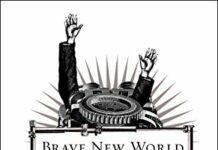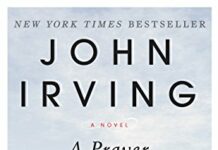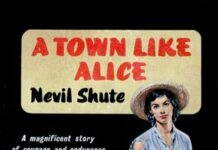
Ebook Info
- Published: 1991
- Number of pages: 240 pages
- Format: Epub
- File Size: 0.28 MB
- Authors: J.D. Salinger
Description
The “brilliant, funny, meaningful novel” (The New Yorker) that established J. D. Salinger as a leading voice in American literature–and that has instilled in millions of readers around the world a lifelong love of books.
“If you really want to hear about it, the first thing you’ll probably want to know is where I was born, and what my lousy childhood was like, and how my parents were occupied and all before they had me, and all that David Copperfield kind of crap, but I don’t feel like going into it, if you want to know the truth.”
The hero-narrator of The Catcher in the Rye is an ancient child of sixteen, a native New Yorker named Holden Caufield. Through circumstances that tend to preclude adult, secondhand description, he leaves his prep school in Pennsylvania and goes underground in New York City for three days.
User’s Reviews
Review “In Mr. Salinger we have a fresh voice. One can actually hear it speaking, and what is has to say is uncannily true, perceptive, and compassionate.”―Clifton Fadiman, Book-of-the-Month Club News”We read The Catcher in the Rye and feel like the book understands us in deep and improbable ways.”―John Green”A contemporary master–a genius…Here was a man who used language as if it were pure energy beautifully controlled, and who knew exactly what he was doing in every silence as well as in every word.”―Richard Yates, New York Times Book Review”Salinger’s work meant a lot to me when I was a young person and his writing still sings now.”―Dave Eggers
Reviews from Amazon users, collected at the time the book is getting published on UniedVRG. It can be related to shiping or paper quality instead of the book content:
⭐ I’m sure glad I got this book. I made it a point to start reading the top 100 bucks in history. I have already read a whole bunch without even knowing it I thought they were just called books turns out they’re on the list I have two more books coming.
⭐ I read the end of The Catcher in the Rye the other day and found myself wanting to take Holden Caulfield by the collar and shake him really, really hard and shout at him to grow up. I suppose I’ve understood for some time now that The Catcher in the Rye — a favorite of mine when I was sixteen — was a favorite precisely because I was sixteen. At sixteen, I found Holden Caulfield’s crisis profoundly moving; I admired his searing indictment of society, his acute understanding of human nature, his extraordinary sensitivity (I mean, come on, he had a nervous breakdown for God’s sake, he had to be sensitive). At sixteen, I wanted to marry Holden Caulfield. At forty, I want to spank him. After all, Holden’s indictment of society boils down to the “insight” that everybody is a phony. That’s the kind of insight a sixteen year old considers deep. A forty year old of the grown-up variety recognizes Holden’s insight as superficial and banal, indulging in the cheapest kind of adolescent posturing. It suggests a grasp of society and of human nature that’s about as complex as an episode of Dawson’s Creek. Holden and his adolescent peers typically behave as though the fate they have suffered (disillusionment and the end of innocence) is unique in human history. He can’t see beyond the spectacle of his own disillusionment (and neither can J. D. Salinger); for all his painful self-consciousness, Holden Caulfield is not really self-aware. He can’t see that he himself is a phony.Compare Salinger’s novel of arrested development, for instance, with a real bildungsroman, Great Expectations. Holden Caulfield is an adolescent reflecting on childhood and adolescence; Pip Pirrip is an adult reflecting on childhood and adolescence. Holden Caulfield has the tunnel vision of teendom, and he depicts events with an immediacy and absorption in the experience that blocks out the broader context, the larger view. Pip Pirrip has the wonderful double vision of a sensitive adult recollecting the sensitive child he used to be; he conveys at the same time the child’s compelling perspective and the adult’s thoughtful revision of events. While Holden Caulfield litters his narrative with indignant exposes of phonies and frauds, Pip Pirrip skillfully concentrates on “the spurious coin of his own make” — that is, without letting the child Pip and the adolescent Pip in on the joke, he exposes himself as a phony. Pip Pirrip grows up. Holden Caulfield has a nervous breakdown.I suppose the only reason I begrudge him his breakdown is that so many in our culture — many more, unfortunately, than just the legitimate adolescents among us — seem fixated on Holden as a symbol of honesty and socially-liberating rebellion. We view nervous collapse and dysfunction as a badge of honor, a sign — to put it in Caulfieldian terms — that we are discerning enough to see through all the crap. Our celebration of overwrought disaffection reminds me of the last sentence of Joyce’s Araby: “Gazing up into the darkness I saw myself as a creature driven and derided by vanity; and my eyes burned with anguish and anger.” Here is the adolescent pose non-pareil. Equally self-accusing and self-aggrandizing, it captures the adolescent at the precise moment when his own disillusionment becomes the object of his grandiose and self-dramatizing vision. That’s the kind of crap that Holden Caulfield (and J. D. Salinger) cannot see through. And it is often the kind of crap that we “adults” like to slosh around in.The Barney beating of several years ago is another symptom of our arrested adolescence, our inability to ride the wave of disillusion into the relatively calm harbor of adulthood — as though flailing around in the storm and raging at the wind were in themselves marks of distinction and a superior sensibility. I remember a news story about a woman in a Barney costume being seriously injured when a rabid (and probably drunken) anti-Barney fanatic attacked the big purple dinosaur at some public event. Now, I don’t know the age of the Barney-beater, but the act itself is a supremely adolescent one, in which the impulsive response to disillusionment is to lash out at those symbols of childhood which made the biggest dupes of us. At the dawn of adolescence, when Barney begins to appear cloying and false, it seems natural to want to beat up on him, as though it was Barney himself who pulled one over on us instead of our own poignant and necessary misapprehension of the nature of things. I could see Holden Caulfield beating up on Barney (at least rhetorically), and I could see Holden Caulfield missing Barney (as he misses all the “phonies” at the end of the book), but I cannot see Holden Caulfield accepting the postlapsarian Barney on new terms, as a figure who is meant for children and not for him. For all his touching poses about wanting to be the “catcher in the rye,” what Holden really wants is not to save children but to be a child again.
⭐ I first read this my senior year of high school in 1994, and I had my 18 year old daughter read it recently. I identified strongly with Holden back then, and I still find him to be a highly relatable character. My daughter felt the same way. It’s semi-embarrassing, seeing our innermost thoughts and feelings on paper, in black and white, for the whole world to read.It seems most people who’ve read this book dislike Holden. Some actually feel serious contempt and loathing toward him. Those people are as equally suprised and confused by our feelings, as we are by theirs.So…what does that say about me and my daughter? Probably best we don’t think about it too much.
⭐ This is supposedly a classic. The boy in this book just seems like a maladjusted, not particularly bright or likable kid. I gave up about 2/3 of the way through. I was hoping it’d get better, but I skipped to the last page. It didn’t. I’m not sure why this is a classic, but I now understand why the author went underground after having written it.
⭐ I know it’s a classic and all, but OMG I hate it! I’m the type who can’t not finish a book or movie, no matter how awful it is. I just have to finish it. But this book… it took me a good 2 years to get through it, simply because I couldn’t stand it. I would read a chapter and then set it aside for months at a time. Finally, when we had some bad weather and I had nothing else to do, I sat and read the last third or so in one day, just to get it over with. And oh what sweet relief when I did finish it! And then it got put in the box of stuff to donate.
⭐ Not a fan of this book :/ felt like the ramblings of a teenage boy with little story
⭐ Classic American literature. Some do hate this book, but I loved it as a teen. I remember crying at the end of the book, wishing that I could spend more time with the main character. In rereading it as an adult, it still haunts me. This is the perfect example of voice in writing. This is a beautifully wrought story that feels like the author just sat down and wrote it straight through. It is a pity that Salinger did not write another full novel. His stories are, however, like an extension in some ways. If you fall down the Salinger rabbit hole, you will know what I mean.
⭐ Holden Caulfield, a 16 year old boy, is stuck between getting kicked out of his prestigious private school and returning home to his understandably upset parents. As a result, he is left wandering the streets of New York, depressed, lonely, and nearly suicidal. In his journey he has numerous encounters with a variety of characters. “Catcher in the Rye” is a coming of age book written with an interesting style, through the lens of an introspective and confused adolescent. The book touches on important themes in a manner that excels in impacting the reader. As a relatable character, Holden helps to make the book a fairly worthwhile read. However, as Holden meets character upon character in the book, it can be difficult to keep track of them. The nature of Holden’s wandering means nearly constant changes that sometimes make the plot feel incoherent. His frequent tangents can be an insight into his mind, but can occasionally leave the reader thinking “get back to the story already.” While it is certainly a good book, it is questionable whether it deserves its classical literature reputation or not. I did not find it to be significantly better than an average book to be worthy of the popularity that it has. Overall, definitely not a bad book.
⭐ This book turned me on to reading when I was 16. Recommended by a wiry-haired English teacher, this book is probably single-handedly responsible for changing my life.This book gets a lot of criticism. It is aimless. It is vulgar, in a 1950s sort-of way. It is depressing. The protagonist is unlikable. These criticisms are all partially true—but perhaps it takes someone who has felt alienated to understand the protagonist and this type of narration.I read this again in university, and now at 33, as an English teacher hoping to turn others on to literature. It is as affecting as ever, and Salinger’s style is what makes this book so great. Holden’s voice and his idiosyncratic way of looking at the world are the charms of this book.Also, the heavily symbolic nature of this book, from the hunting hat, to the ducks in the lagoon, to the carousel in the final scene, make this a thoroughly satisfying text — they shift in meaning throughout, and give the book a “cohesion” that tie together its seemingly loosen ends.I love this book. Everybody who loves literature should read it.
⭐ I just finished this book today, and I’m wondering why it’s considered such a classic? Is it because MD Chapman had it on him when he killed Lennon? If the show Seinfeld was a show about nothing, then this is a book about nothing. Nothing happened. No major events. Nothing shocking. Nothing memorable. Nada! Zilch! It’s a simple story about an underachieving slacker who keeps getting kicked out of school. That’s it. And it’s annoying as hell with him calling every “old” this and “old” that before their names. And the gratuitous use of “goddam” every other word (and misspelled too). And when he says after almost every statement “it really is,” or “I really did,” or whatever. Super annoying. If I want to read a compelling novel about teen alienation and angst I’d much rather read “The Outsiders.”
Keywords
Free Download The Catcher in the Rye in Epub format
The Catcher in the Rye Epub Free Download
Download The Catcher in the Rye 1991 Epub Free
The Catcher in the Rye 1991 Epub Free Download
Download The Catcher in the Rye Epub
Free Download Ebook The Catcher in the Rye





